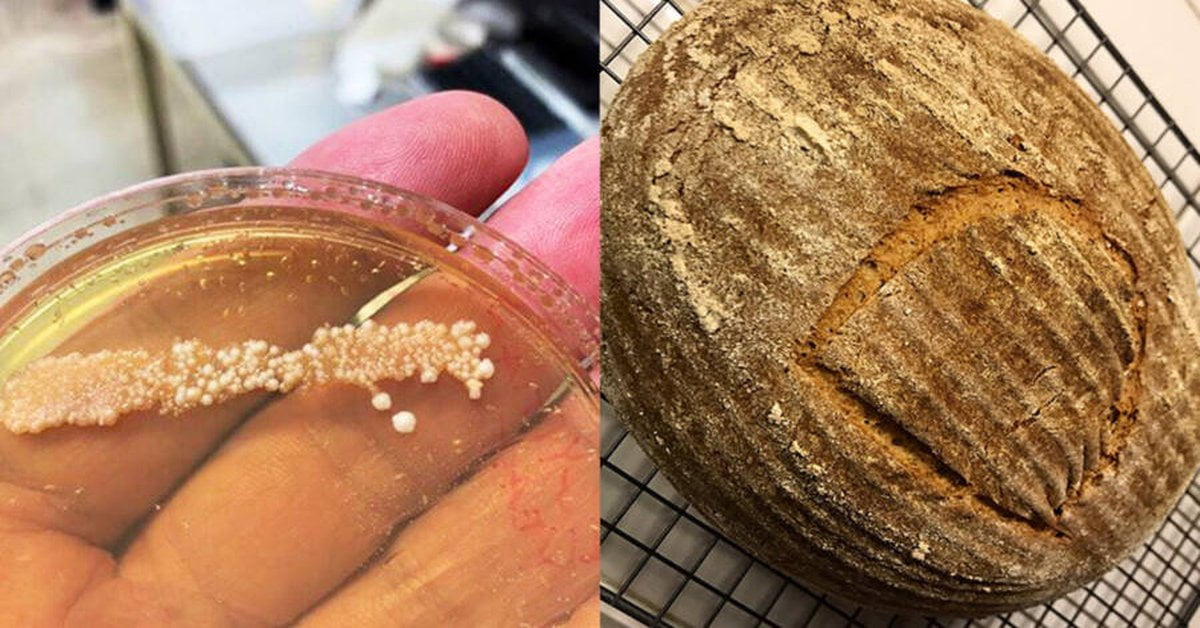Physicist Seamus Blackley, who is more known as the man behind Xbox, have extracted yeast from ancient Egyptian pottery and used it to make some extremely delicious sourdough bread.

Have you ever wondered how bread would have tasted thousands of years ago compared to the sliced stuff you buy at the supermarket? Well, one physicist decided to figure that out.
Physicist Seamus Blackley – whose name might sound more familiar as the man behind the Xbox – got the chance of a lifetime to bake some bread using 4,500-year-old yeast collected from ancient Egyptian relics. According to his taste test, bread from back then tastes even much better than today’s.

The bread eaten by ancient Egyptians was a lot different than what we eat today, abd Blackley has been working to recreate it. He had already taught himself how to bake sourdough with freshly milled Barley and Einkorn, ancient grains that few modern people still use, which he also documented on Twitter. But there was one crucial ingredient he couldn’t get at any supermarket: ancient yeast.
Blackley reckons yeast is what gives bread its flavor, but the one we use today is significantly different from ancient yeast. The yeast you buy at the grocery store is bioengineered, so Blackley has taken to collecting some the oldschool way: he left a mixture of flour and water out in the woods, collecting microbes from the environment.
However, Earth’s atmosphere has gone through significant changes since ancient times, and microbes have changed with it. So, to make authentic ancient Egyptian bread, Blackley had to get his hands on some of the real ancient Egyptian stuff. Fortunately, most of the yeast used in breadmaking hibernates for long periods of time, so he started looking for ancient yeast in Egyptian pottery like the kind held by museums.

With the guidance of microbiologist Richard Bowman of the University of Iowa and archeologist Serena Love of the University of Queensland, he collected yeast from ancient Egyptian pottery on display at the Boston Museum of Fine Arts and Harvard’s Peabody Museum.
The team managed to extract yeast trapped within the pores of the clay without damaging the artifacts, by pumping in liquid and pulling the yeast out with it.

“Our extraction process was basically a form of microbiological fracking,” Blackley noted.
The samples were then shipped to a lab, where the researchers plan on doing genetic testing to understand more about this ancient yeast. In the meantime, though, Blackley took one sample for himself to create a sourdough starter.

Using sterile lab techniques in his home kitchen to avoid contamination, he fed the yeast ancient grains for a week, culturing it until it was ready to bake. Finally, he put the yeast to work, with some incredible results.
“This crazy ancient dough fermented and rose beautifully. Here it is in the basket, just before being turned out to bake. The ancient Egyptians didn’t bake like this- you’ll see- but I need to get a feel for all this so I’m going conventional for now.”

He finally baked a sourdough loaf, with a hieroglyphic carved into the final product. The ancient loaf came out “much sweeter and more rich” than the your everyday sourdough. It was so good that Blackley and his wife enjoyed the fruits of his labor for breakfast.
And apparently even later during the day. “My wife is decimating the Egyptian bread. I believe she is actually Sekhmet,” Blackley wrote on Twitter.

The next step for Blackley is baking like the Egyptians, over a clay baking pit, he said.
To Blackley, baking like the Egyptians did isn’t just a scientific curiosity. To him, baking represents a cultural connection to the past. Though one can definitely learn a lot about ancient cultures from museum exhibits, to be able to cook they way they did allows Blackley to “virtually break bread with them.”
“Science is a tool that we use to understand things, but the motivation has to be fundamentally human,” Blackley said. “We want to be closer to these people.”
Sources: 1, 2, 3
